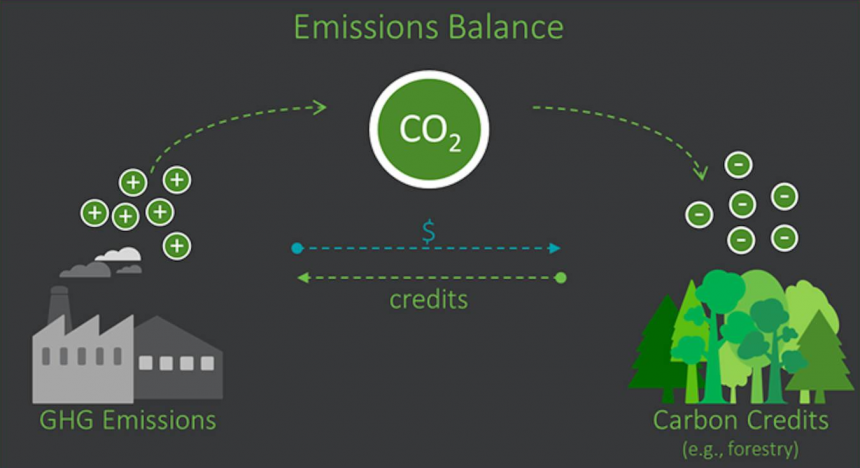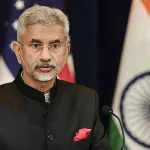In a major stride toward combating climate change and meeting its ambitious climate goals, India has released two essential guidelines that will shape the future of the Indian Carbon Market (ICM). These are the Detailed Procedure for Compliance Mechanism and the Accreditation Procedure and Eligibility Criteria for Accredited Carbon Verification Agencies. Together, they are expected to catalyze India’s efforts to price carbon emissions and facilitate the trade of carbon credits, bringing the country closer to its climate commitments.
India’s climate strategy, as outlined in its Nationally Determined Contributions (NDCs) under the Paris Agreement on Climate Change, has not only met but surpassed several of its targets ahead of schedule. Signed in 2016, the Paris Agreement aimed to limit global temperature rise to below 2°C by the end of the century. India initially pledged to reduce the emission intensity of its GDP by 33-35% by 2030 from 2005 levels. However, India achieved this target well ahead of time, highlighting its commitment to combating climate change.Furthering its ambitions, at the Conference of Parties (COP26) in Glasgow in 2021, India set even more aggressive goals. It vowed to achieve net-zero emissions by 2070, reduce the carbon intensity of its economy by 45% by 2030, and generate 50% of its electricity from non-fossil fuel sources within the same timeframe. By already achieving some of these milestones ahead of schedule, India has demonstrated leadership in the global effort to address climate change.
But how do we get there? That’s where the Indian Carbon Market (ICM) comes in. The idea is simple: if a company reduces its carbon emissions, it earns something called carbon credits, which it can sell to other companies that are struggling to reduce their emissions. It’s like a reward system – companies that do better for the environment can earn money, while those that need more time to improve can buy credits to offset their excess emissions.
The Indian Carbon Market needs a comprehensive and transparent system that promotes decarbonization while driving economic growth. The Indian Carbon Market, with its emphasis on pricing emissions, presents a key mechanism to achieve this balance. By allowing companies to trade carbon credits, India aims to incentivize both public and private stakeholders to actively reduce their carbon footprints, enabling the country to decarbonize in a cost-effective and scalable manner.
Building the Indian Carbon Market Framework
The foundation for the Indian Carbon Market was laid with the amendment to the Energy Conservation Act, 2001 in 2022, which empowered the government to establish a Carbon Credit Trading Scheme (CCTS). This scheme provides the regulatory structure needed to operationalize carbon trading, aligning India with global carbon market practices. The CCTS, introduced in June 2023 and further refined in December 2023, offers a structured approach to carbon trading through two key mechanisms: compliance and offsets.
The compliance mechanism targets industries and sectors that are classified as “obligated entities.” These entities are required to meet specific Greenhouse Gas Emission Intensity (GEI) targets set by the government. If an obligated entity reduces its emissions below the prescribed targets, carbon credit certificates will be awarded to it, which can be traded on the trading exchange. Conversely, entities that fail to meet their targets must purchase credits to offset their excess emissions. This market-driven mechanism ensures that companies are incentivized to cut emissions, making it an essential tool for India to meet its national and international climate commitments.
The offset mechanism complements the compliance system by allowing non-obligated entities to voluntarily participate in the carbon market. These entities, which may include renewable energy projects or initiatives aimed at reducing emissions, can register their activities for carbon credits. By contributing to overall emissions reduction, these projects are awarded carbon credits that can be traded, fostering a wider network of participants in India’s carbon market.
New Guidelines to Support Compliance and Verification
The Detailed Procedure for Compliance Mechanism explains how the carbon market system works. It shows companies how to track and report their emission levels and how they can earn carbon credits if they meet or beat their emission-reduction goals. For example, if a cement company reduces its emissions by more than what’s required, it can earn extra carbon credits. These credits are like points that the company can sell to another business, maybe a steel factory, that’s finding it harder to reduce emissions. This way, businesses that need more time to cut emission can still meet their goals by buying credits from those that did better.
This Detailed Procedure for Compliance Mechanism is designed to provide a clear roadmap for how the compliance process will work. This document outlines the principles, processes, and timelines that stakeholders must follow to meet their emission reduction obligations. It includes guidance on how entities should monitor, report, and verify their GHG emissions, ensuring that the system is transparent and accountable.
The second guideline, called the Accreditation Procedure, ensures that the companies checking if the emissionreductions are real are trustworthy and capable. There will be 3rd party organizations called Accredited Carbon Verification Agencies (ACVs) to verify if businesses are honestly reporting their emission levels. For instance, if an industry claims to have reduced emissions by using more energy efficient technology or renewable power, an ACV will double-check the numbers before awarding any carbon credits. It’s like having auditors who ensure everything is accurate and fair. This makes sure the system is transparent, and we can trust that the emission reductions are real and not just on paper.
To better understand how this system might look in practice, let’s consider a few real-world examples: A large steel company in India is required to reduce its carbon emissions by 10% by the end of the year. To meet this target, the company upgrades its machinery to be more energy-efficient, reducing its carbon emissions by 15%. And these emissions are checked and verified by Accredited Carbon Verification Agencies. The extra 5% reduction earns the company carbon credits that it can sell to another company, like a cement manufacturer, that may be struggling to meet its emissions target. This way, both companies benefit while India’s overall emissions go down.
What Comes Next for the Indian Carbon Market?
The operationalization of the Indian Carbon Market is still in its early stages, but the groundwork is quickly taking shape. The Bureau of Energy Efficiency (BEE), which serves as the administrator of the ICM, is currently finalizing sector-specific emission targets for industries participating in the compliance mechanism. These targets will be crucial in guiding companies towards achieving emission reductions in line with India’s NDCs.
At the same time, the BEE is also working on developing an ICM Portal, a digital platform that will enable the smooth trading of carbon credits. This IT infrastructure will be key to ensuring that the carbon market runs efficiently and that transactions are transparent and accessible to all participants. Additionally, the BEE is collaborating with the Central Electricity Regulatory Commission (CERC) to develop regulations governing the trading of carbon credits, further solidifying the framework for India’s carbon market.
The Indian Carbon Market is poised to create a significant impact, benefiting both the environment and the economy. By motivating businesses to reduce their emissions and rewarding those that succeed, the market accelerates the shift toward greener technologies. This system ensures that companies can work toward their climate goals in a more cost-effective way. Over time, as more industries participate, the carbon market will help reduce the costs of cutting emissions by allowing businesses to trade carbon credits. This trading enables companies that find it challenging or expensive to lower their emissions to purchase credits from those already leading the way in adopting cleaner technologies.
Antonio Guterres, UN Secretary-General, has emphasized the importance of carbon markets, stating, “We need to close the emissions gap, and carbon markets can be a critical part of that strategy, driving investment into cleaner technologies and practices.” This underscores how the carbon market empowers businesses and individuals to contribute to meaningful change in their operations and practices.
By creating a marketplace where carbon credits can be traded, the cost of adopting green technologies becomes more manageable for businesses. Instead of each company bearing the full expense of transitioning to sustainable operations, they can gradually phase in changes while remaining competitive. The Indian Carbon Market presents a transformative opportunity, with the potential to grow into a $15 billion market by 2030, driving significant investments in renewable energy, green technologies, and low-carbon innovations. As the third-largest emitter of CO2, India’s carbon market will play a pivotal role in reducing global emissions, helping the country achieve its ambitious net-zero target by 2070. This approach not only accelerates India’s journey toward meeting its climate commitments but also helps businesses lessen the financial burden of decarbonization. Ultimately, the Indian Carbon Market represents a sustainable and economically sound solution for the future, benefiting both the planet and the economy.
(Ashok Kumar, DDG BEE; Saurabh Diddi, Director BEE: Atik Matin Sheikh, Climate Change Expert, BEE. Courtesy: PIB)








